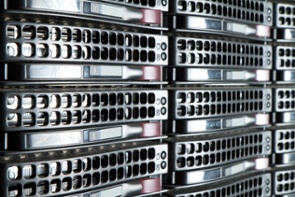 Anytime you upgrade the storage and networking equipment that comprises one of your company’s data centers you have to make a decision about what to do with the old equipment. Data center management teams are facing that decision more and more frequently as companies migrate their applications to the cloud or choose to consolidate onto the latest high-efficiency servers or virtual servers (or both). For any piece of equipment, the choice is either to redeploy it, finding a use for it somewhere else within the IT infrastructure; or dispose of it, decommissioning it and releasing it to be recycled or remarketed. Factors like resale value and storage requirements are usually taken into consideration.
Anytime you upgrade the storage and networking equipment that comprises one of your company’s data centers you have to make a decision about what to do with the old equipment. Data center management teams are facing that decision more and more frequently as companies migrate their applications to the cloud or choose to consolidate onto the latest high-efficiency servers or virtual servers (or both). For any piece of equipment, the choice is either to redeploy it, finding a use for it somewhere else within the IT infrastructure; or dispose of it, decommissioning it and releasing it to be recycled or remarketed. Factors like resale value and storage requirements are usually taken into consideration.
If a former data center asset has no further use to your organization and it isn’t worth selling, it must be recycled. But if IT recycling isn’t done correctly, your company risks violating state and federal environmental regulations. On top of that, your company probably has its own environmental policies it expects all its departments to follow. Most likely, your company’s electronics recycling is handled by a vendor, but just turning over materials to a vendor who promises to do the right thing does not remove liability from your company. If improperly disposed of material can be traced back to your company, you are liable.
How can you be sure your IT asset disposition partner conducts its recycling operations in compliance with all state and federal regulations and is up to your company’s environmental standards? Choose a certified electronics recycler. Certification from a respected third-party organization tells you your vendor has been thoroughly checked out and meets the most rigorous standards for IT recycling. Two leading certifications to look for while choosing partners for your data center project are e-Stewards and R2/RIOS.
e-Stewards
e-Stewards certification was developed by the Basel Action Network, the activist organization almost single-handedly responsible for bringing electronics recycling to the forefront of the environmental movement. Companies with e-Stewards certification must pledge to follow strict rules that prevent illegal export or landfilling of electronic waste—and prove they’re following the pledge.
R2/RIOS
R2/RIOS is a dual certification; it adds the electronics recycling industry-specific Responsible Recycling (R2) practices to the broader base of the Recycling Industry Operating Standards. These standards were developed in an open, multi-stakeholder process with sponsorship from the federal Environmental Protection Agency (EPA).
The combined assurance of both e-Stewards and R2/RIOS certifications
On their own, both certifications provide solid proof that an ITAD partner is handling its customers’ electronics waste in an environmentally safe and compliant way. Increasingly, large enterprises, concerned about the risk of environmental noncompliance, require that their vendors hold both. There are just a few IT asset disposition companies that fall into this category, but those that do are considered industry leaders in sustainability.
How to plan a data center project that reduces risk and cost for asset disposition
Choosing an R2/RIOS or e-Stewards certified partner for electronics recycling is one way to respond to the IT asset disposition challenges of a data center project or cloud migration. But there are also data security and logistical concerns. Our white paper, “Cloud Migration, Data Center Consolidation, and IT Asset Disposition,” addresses six asset disposition issues typically encountered during a data center project and offers best practices for dealing with them.


